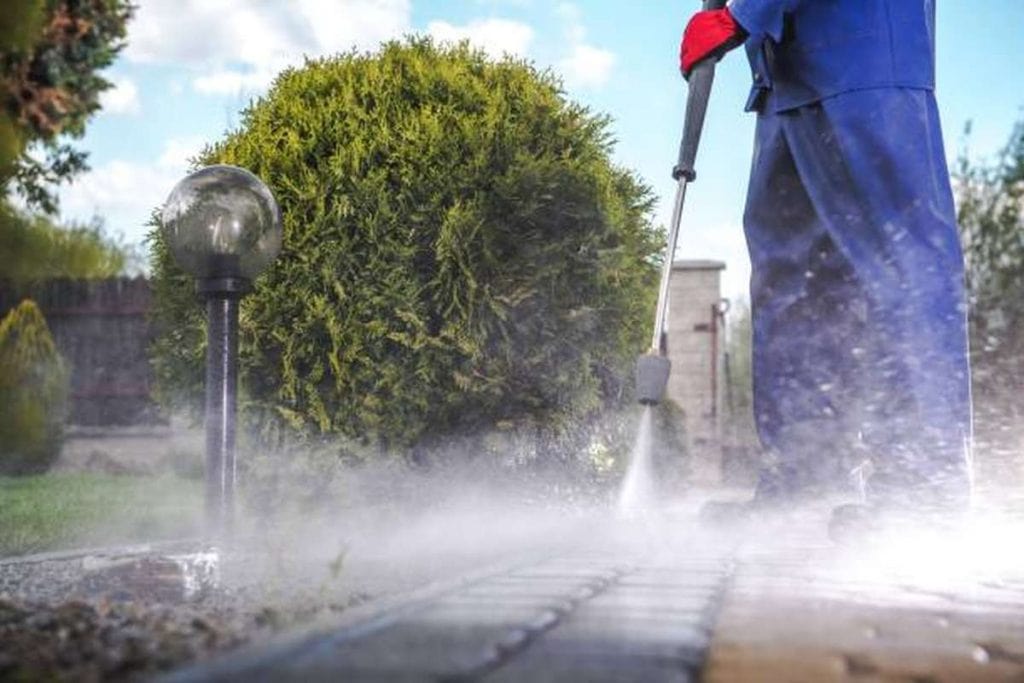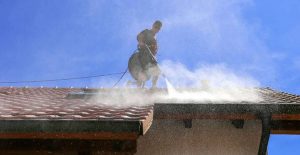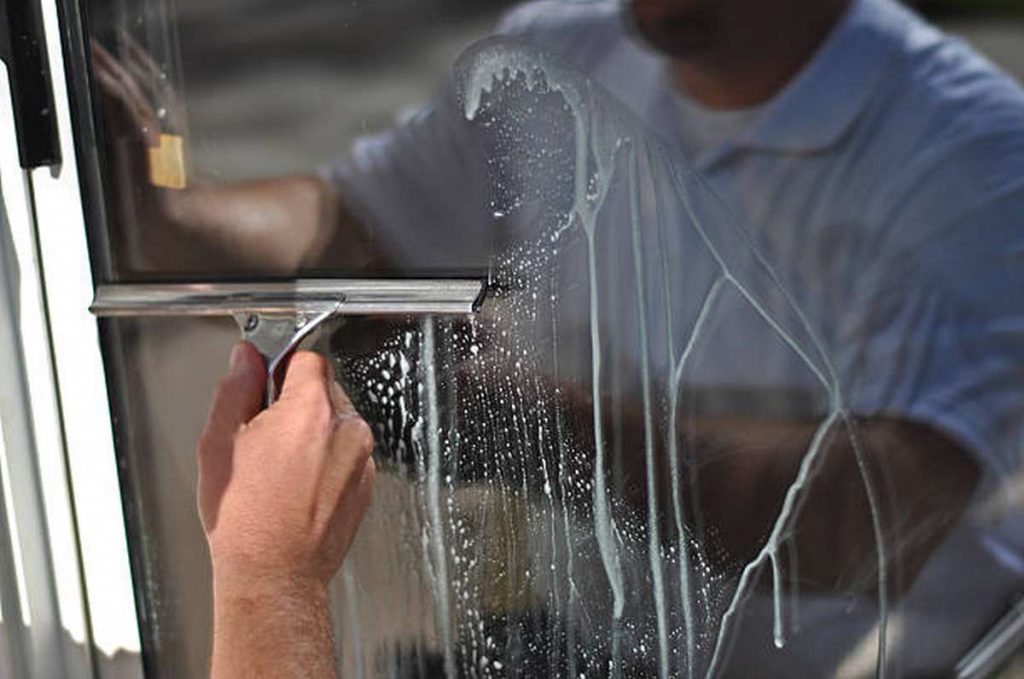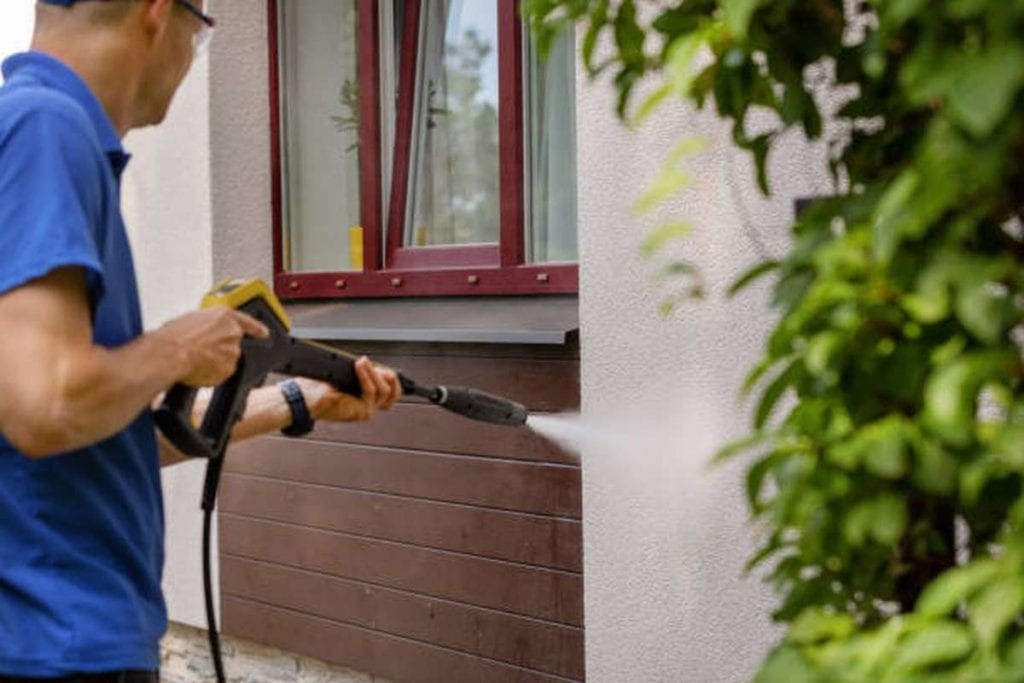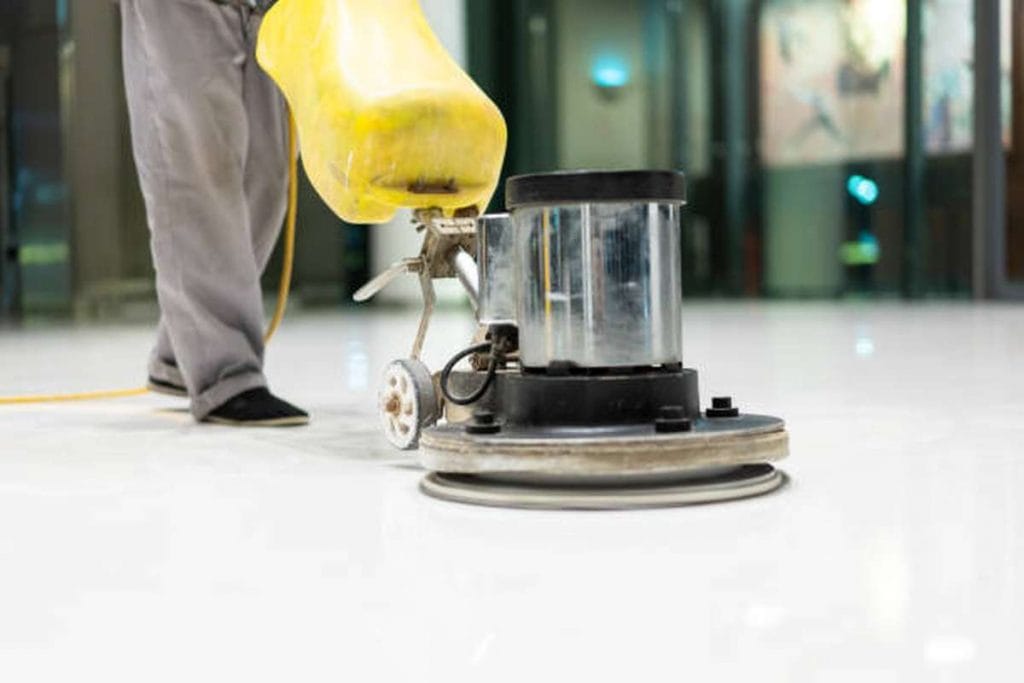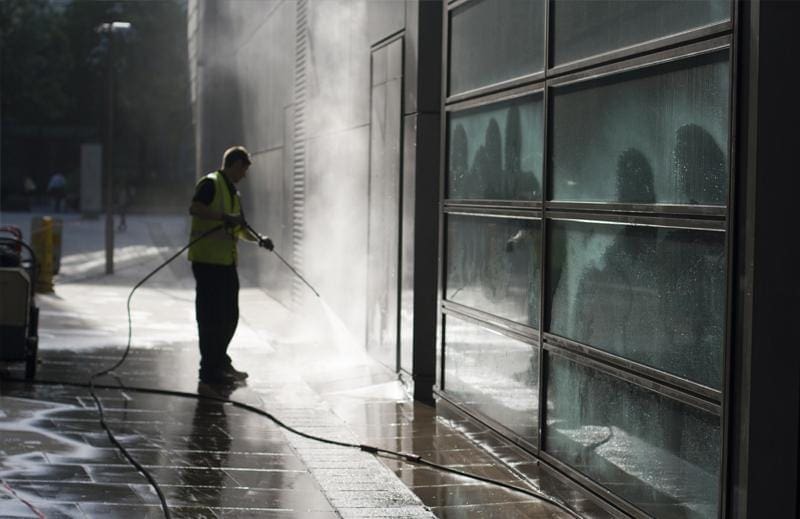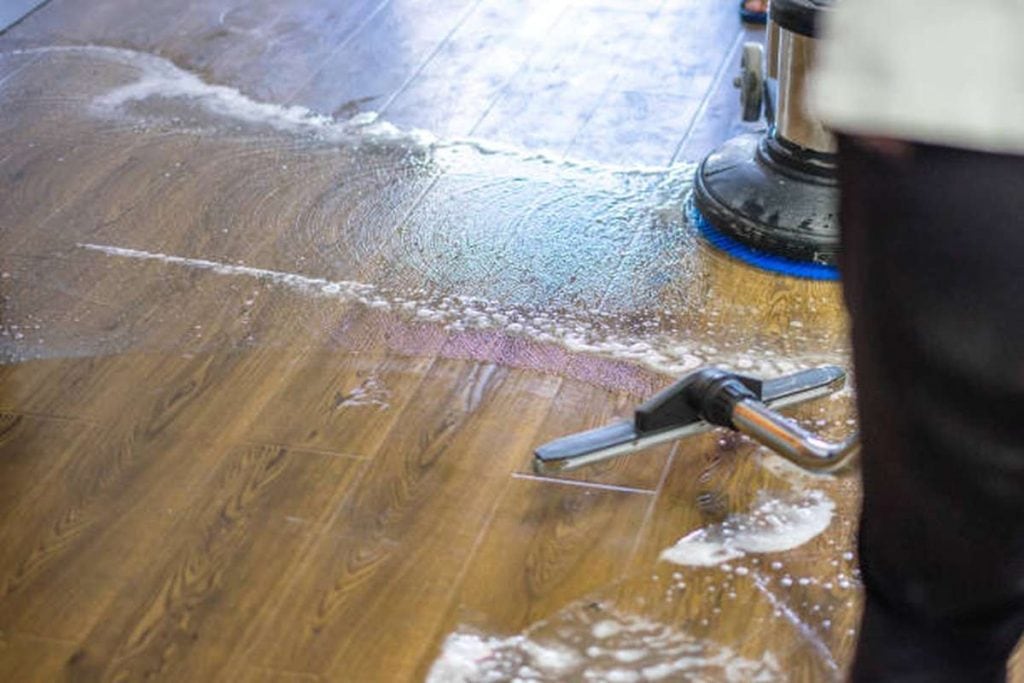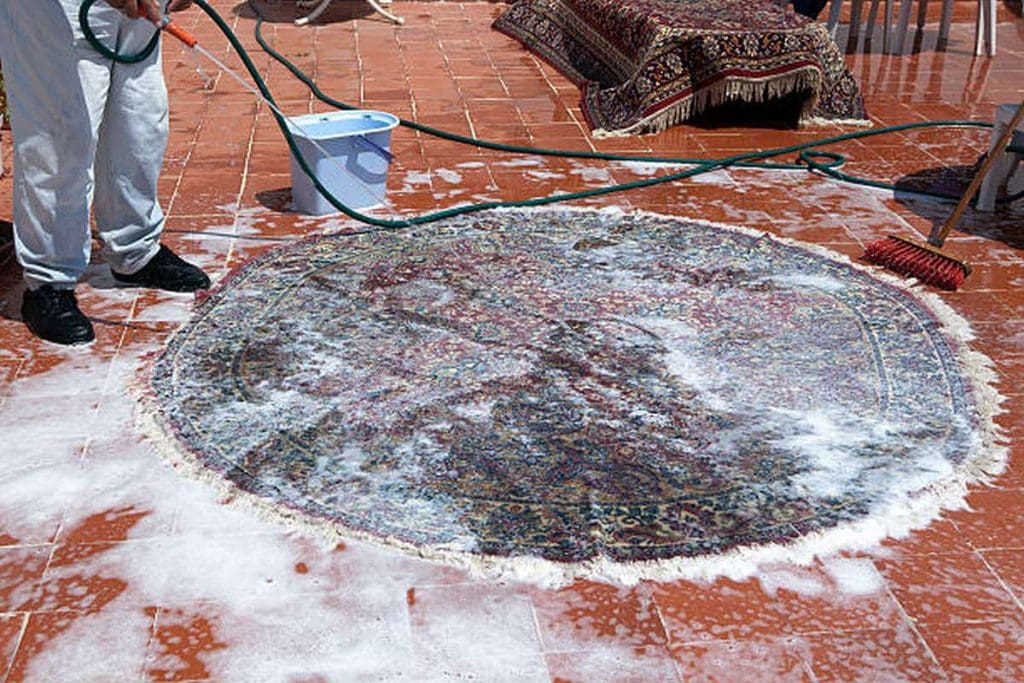When it comes time to freshen up your space, whether a bustling office or a cozy apartment, understanding the cleaning service you require is crucial; at first glance, bond cleaning and commercial cleaning might seem interchangeable after all, both promise a thorough cleaning. However, the purposes they serve, the processes they involve, and the outcomes they deliver are distinctly different. Bond cleaning, also known as end-of-lease cleaning, is a tenant's recourse for reclaiming a full security deposit, while commercial cleaning is the ongoing workplace maintenance. This blog will delve into the nuances that set bond cleaning apart from commercial cleaning, shedding light on their unique roles within the cleaning industry.
Bond Cleaning vs Commercial Cleaning: What You Need to Know
Bond and commercial cleaning are two types of cleaning services that often need clarification from property owners, tenants, and managers. However, they have different purposes, requirements, and outcomes. Here is what you need to know about the differences between bond and commercial cleaning.
Bond cleaning, also known as end-of-lease cleaning or exit cleaning, is a service that is performed when a tenant moves out of a rented property. Bond cleaning aims to restore the property to its original condition, per the rental agreement, and ensure the tenant gets their bond money back. Bond cleaning is usually done by a professional cleaning company that follows a checklist of tasks that cover every aspect of the property, such as floors, walls, windows, carpets, appliances, furniture, etc. Bond cleaning is a one-time service that is paid for by the tenant.
On the other hand, commercial cleaning is a service performed regularly for businesses and offices. Commercial cleaning aims to maintain a clean and hygienic work environment for employees and customers. Commercial cleaning is usually done by a professional cleaning company that offers customised packages of services that suit the needs and budget of the business, such as dusting, vacuuming, sanitising, disinfecting, etc. Commercial cleaning is an ongoing service paid for by the business owner.
As you can see, bond cleaning and commercial cleaning differ in scope, frequency, and cost. Bond cleaning is more thorough, less frequent, and expensive than commercial cleaning. Commercial cleaning is more flexible, frequent, and affordable than bond cleaning. You can choose the right cleaning service for your property depending on your situation and needs. If a tenant is moving out of a rented property, you need bond cleaning to get your bond money back. If you are a business owner who wants to keep your workplace clean and healthy, you need commercial cleaning to boost your productivity and reputation.
How Do You Choose Bond Or Commercial Cleaning For Your Property?
Choosing the right cleaning service for your property can be challenging, especially if you need clarification on the differences between bond cleaning and commercial cleaning. Here are some factors you should consider before deciding:
- The type of property: Bond cleaning is suitable for rented properties, such as apartments, houses, or offices, that must be cleaned at the end of the lease period. Commercial cleaning is suitable for business properties, such as offices, shops, or restaurants, that must be cleaned regularly.
- The purpose of cleaning: Bond cleaning ensures that the property is returned to its original condition, as per the rental agreement, and that the tenant gets their bond money back. Commercial cleaning is done to maintain a clean and hygienic work environment for employees and customers.
- The scope of cleaning: Bond cleaning is more comprehensive than commercial cleaning, as it covers every aspect of the property, such as floors, walls, windows, carpets, appliances, furniture, etc. Commercial cleaning is more flexible and customised, as it offers different packages of services that suit the needs and budget of the business, such as dusting, vacuuming, sanitising, disinfecting, etc.
- The frequency of cleaning: Bond cleaning is a one-time service when the tenant moves out of the property. Commercial cleaning is an ongoing service done at regular intervals, such as daily, weekly, or monthly, depending on the business requirements.
- The cost of cleaning: Bond cleaning is more expensive than commercial cleaning, as it requires more time, effort, and resources. The cost of bond cleaning depends on the property's size, condition, location, and the cleaning company's rates. Commercial cleaning is more affordable than bond cleaning, offering competitive prices and discounts.
The cost of commercial cleaning depends on the service's type, frequency, duration, and the cleaning company's rates. Considering these factors, you can choose the right cleaning service for your property. If you are looking for a reliable and professional cleaning company that offers bond and commercial cleaning services, you can check out [this website] for more information.
Advantages of Bond Cleaning vs Commercial Cleaning for Landlords and Tenants
Bond cleaning, also known as end-of-lease cleaning, is a thorough cleaning service provided to rental properties by tenants when their lease ends. This type of cleaning is crucial for tenants to secure their security deposit refund and for landlords to prepare the property for the next occupants. While commercial cleaning services offer regular maintenance, bond cleaning delves deeper, offering benefits that far surpass the scope of regular commercial cleaning.
For tenants, bond cleaning is the key to leaving a good impression and ensuring that no part of the security deposit is withheld due to cleaning issues. Professional bond cleaners are meticulous, aiming to restore the property to its original condition. This level of detail can include steam cleaning carpets, scrubbing grout in bathrooms, cleaning appliances, and reaching into every nook and cranny that the landlord or the property manager could scrutinise during the final inspection.
Landlords, on the other hand, benefit from bond cleaning as it significantly raises the likelihood of the property being leased quickly again. A spotless property is far more appealing to prospective tenants and can justify a higher rental price. Moreover, it maintains the property at a high standard, helping to preserve its value over time. Professional bond cleaning can also highlight areas that may require maintenance or repair, which can be addressed before they become more costly.
Both tenants and landlords gain peace of mind with bond cleaning services. Tenants can leave their lease without leaving anything to chance regarding their deposit, and landlords receive their property in prime condition, ready for the new residents. In contrast to regular commercial cleaning, which is more surface-level and routine, bond cleaning is comprehensive, ensuring that every cleaning checklist is completed to the highest standard.
By investing in professional bond cleaning services, both tenants and landlords can save time and money and avoid the disputes that often arise over the cleanliness of a property at the end of a tenancy. It's a strategic move that benefits all parties involved in the leasing process.
What is the Difference between Bond Cleaning and Commercial Cleaning?
Bond cleaning and commercial cleaning are both essential services in the maintenance of properties, but they serve different purposes and are required in different contexts. Understanding their distinct roles can help tenants, landlords, and business owners determine the appropriate service.
Bond Cleaning
Purpose: Bond cleaning is specifically geared towards cleaning rental properties at the end of a lease term. Its primary goal is to ensure that tenants receive their security deposit back and that the property is in excellent condition for incoming renters.
Scope
- Thoroughness: This involves deep cleaning covering every inch of the property, including areas often overlooked in routine cleanings.
- Checklist Specific: Often follows a detailed checklist provided by the property manager or landlord, addressing areas that must be cleaned to meet the standards for the return of a bond.
Frequency
- One-Time Service: Typically performed once at the end of a tenancy, although some tenants might opt for periodic bond cleaning during their lease.
Services Included:
- Deep cleaning of all rooms and areas
- Carpet steam cleaning
- Cleaning of appliances (oven, dishwasher, etc.)
- Window cleaning, including tracks and frames
- Wall washing and spot cleaning
Commercial Cleaning
Purpose: Commercial cleaning is for businesses and commercial spaces to maintain a clean and hygienic work environment for employees and customers.
Scope
- Maintenance Focused: Aimed at the regular upkeep of commercial spaces, often customised to the business's requirements.
- Variability: The scope can range from basic cleaning to specialised services depending on the business type (e.g., restaurants, offices, hospitals).
Frequency
Regular Service: Usually conducted on a daily, weekly, or bi-weekly basis, maintaining a consistent level of cleanliness.
Services Included
- General dusting and vacuuming
- Restroom cleaning and restocking
- Trash removal
- Floor cleaning and maintenance
- Workspace cleaning and disinfecting
Key Differences
- Intended Outcome: Bond cleaning is performed to restore a property to its original state, whereas commercial cleaning is about maintaining a certain level of cleanliness on an ongoing basis.
- Level of Detail: Bond cleaning is more detailed and intensive, often including cleaning tasks that are not usually part of commercial cleaning routines.
- Customisation: While bond cleaning follows a standard checklist, commercial cleaning services are tailored to the unique needs of each business.
Both bond and commercial cleaning are vital for their respective spheres; bond cleaning ensures the transition between tenants is seamless, and commercial cleaning ensures the continuous operational hygiene of business premises. Understanding these differences can guide individuals and businesses to opt for the type of cleaning that best suits their situation.
Bond Cleaning and Commercial Cleaning: How They Differ in Terms of Quality, Cost, and Time
The comparison between bond cleaning and commercial cleaning often hinges on three pivotal aspects: the quality of the cleaning, the cost involved, and the time required to complete the service. Each type of cleaning serves a unique purpose and, as such, has different standards and expectations when it comes to these factors.
Quality
Bond Cleaning:
- High Standards: The quality of bond cleaning is typically held to a very high standard because it must pass the scrutiny of landlords and property managers during the final inspection.
- Detail-Oriented: This comprehensive service includes areas often neglected during regular cleaning, like the insides of cabinets and behind appliances.
Commercial Cleaning:
- Consistent Quality: Commercial cleaning aims for consistent quality to maintain a professional and hygienic environment.
- Custom Quality Standards: Businesses may set quality benchmarks based on industry standards and customer expectations.
Cost
Bond Cleaning:
- Higher Cost: The cost of bond cleaning can be higher due to its extensive nature. It is a detailed one-time service that requires significant labour and time.
- Security Deposit: The cost can be offset by the return of the tenant's security deposit, which is contingent on the state of cleanliness of the property.
Commercial Cleaning:
- Variable Cost: The cost of commercial cleaning varies greatly depending on the frequency of service, the space's size, and the business's specific requirements.
- Contracted Service: Often charged on a contractual basis, which can lead to cost savings over time.
Time
Bond Cleaning:
- Time-Intensive: Bond cleaning is a time-intensive process as it covers every aspect of the property and may require a team of cleaners for several hours or even a full day to complete.
- Scheduled: It is typically scheduled well in advance and may coincide with the end of a lease term.
Commercial Cleaning:
- Time-Efficient: Commercial cleaning is designed to be time-efficient to minimise disruption to business operations.
- Regular Schedule: Services are often performed after hours or during designated times that align with business hours.
Bond cleaning is a specialised, in-depth cleaning service that prepares rental properties for new tenants and ensures the return of a security deposit. It is characterised by meticulous attention to detail, higher one-time costs, and more extensive time commitment. In contrast, commercial cleaning is an ongoing service that maintains cleanliness in business environments. It emphasises consistent quality, has a variable cost structure, and is integrated into the regular business operations schedule. Understanding these differences is crucial for tenants and landlords who require thorough cleaning at the end of a lease and business owners who need regular cleaning to maintain their commercial spaces.
How Bond Cleaning Can Save You Money and Hassle Compared to Commercial Cleaning
While bond cleaning and commercial cleaning have their place in the maintenance of properties, bond cleaning can offer distinct financial and practical advantages, especially in residential tenancies. Here's how bond cleaning can save you money and hassle compared to commercial cleaning:
Financial Savings with Bond Cleaning
- Security Deposit Recovery: The most direct financial benefit of bond cleaning for tenants is the increased likelihood of recovering the full security deposit. A professional bond cleaning service ensures the property is returned to the landlord in the best possible condition, reducing the chances of disputes over cleanliness that could result in deductions from the deposit.
- Avoidance of Repair Costs: Bond cleaners often identify areas that require minor repairs or touch-ups during their comprehensive cleaning process. Addressing these issues before the landlord's inspection can prevent potential charges for damages or maintenance, which could be more expensive if handled by the property management.
- One-Time Expense: Unlike recurring commercial cleaning costs, bond cleaning is a one-time expense tied to a specific event – the end of a lease. This makes it easier to budget without the commitment to ongoing fees.
Hassle Reduction with Bond Cleaning
- Streamlined Moving Process: The end of a lease is a busy time with numerous tasks to juggle. Professional bond cleaning takes the burden of deep cleaning off your shoulders, allowing you to focus on the logistics of your move.
- Compliance with Lease Terms: Many rental agreements stipulate a professional standard of cleanliness upon vacating the property. A bond cleaning service is familiar with these standards and can ensure compliance, preventing potential conflicts with the landlord.
- Efficiency and Expertise: Bond cleaners are equipped with the tools and expertise to clean efficiently and effectively. They can often complete the job faster and to a higher standard than the tenant or a regular commercial cleaning service could, saving you time and effort.
- Scheduling Convenience: Bond cleaning services understand the urgency and time constraints of end-of-lease cleaning. They are typically flexible and can be scheduled to fit the tight timelines of moving out, ensuring the property is cleaned right before the final inspection.
In contrast, commercial cleaning services are designed for the regular upkeep of business premises. They may focus on something other than the detail required when a tenant moves out. The ongoing expense and the nature of the services may not align with the one-time, detailed cleaning necessary to satisfy end-of-lease obligations.
Choosing bond cleaning over commercial cleaning at the end of a tenancy can provide considerable financial benefits and reduce the stress and hassle associated with moving. It's an investment in ensuring a smooth transition from one property to the next, with the bonus of saving money in the long run.
FAQs
Can businesses benefit from bond cleaning services, or is it strictly for rented residential properties?
While bond cleaning is tailored specifically for the rental housing market, businesses can occasionally benefit from a similar deep cleaning service, especially when ending a lease on a commercial property or undergoing a significant transition. However, "bond cleaning" is generally reserved for residential move-out situations.
How should one decide between hiring a bond and a commercial cleaning service?
The decision rests on the purpose of the cleaning. Bond cleaning is the appropriate choice if you're a tenant at the end of your lease and must ensure the property is returned to the landlord in top condition to reclaim your deposit. On the other hand, if you're seeking to maintain a clean and professional business environment regularly, commercial cleaning services are better suited to your needs.
Is bond cleaning more expensive than regular commercial cleaning services?
Bond cleaning can be more expensive than regular commercial cleaning because it is more thorough and time-consuming. It covers areas often not included in standard cleaning services and requires attention to detail to meet the stringent standards required for a bond refund. However, this cost is offset by the financial benefit of securing the return of the tenant's security deposit.
What happens if a tenant skips bond cleaning?
Skipping bond cleaning can lead to part or all of the security deposit being withheld by the landlord to cover the cost of cleaning the property to the required standard. Additionally, it could lead to disputes or claims against the tenant, which could affect future rental opportunities.
Do commercial cleaning services offer the same level of detail as bond cleaning?
Generally, commercial cleaning services offer a different level of detail than bond cleaning. Commercial cleaning is designed for the upkeep and maintenance of a workspace and focuses on high-traffic areas. In contrast, bond cleaning is a top-to-bottom cleaning of the entire property, ensuring that every nook and cranny is addressed.
Can landlords request commercial cleaning instead of bond cleaning?
Landlords typically request bond cleaning because it is designed to prepare a property for new tenants by ensuring that every aspect of the property is cleaned to a high standard. While they could request commercial cleaning, it may not satisfy the lease agreement requirements regarding the condition of the property at the end of the tenancy.
Summary
Navigating the world of cleaning services can be perplexing, with various options available. However, recognising the divergence between bond and commercial cleaning simplifies decision-making. Bond cleaning is an intensive, one-off service meticulously tailored to ensure tenants can immediately hand back their rented property, thus safeguarding their deposit.
Conversely, commercial cleaning is a recurrent necessity that sustains a clean and hygienic environment for businesses. While both are fundamental, they cater to different needs, occasions, and expectations.
Understanding these differences is paramount for tenants seeking to leave their rented premises spotless at the end of their lease and for business owners who aim to maintain their spaces for employees and clients alike. By selecting the appropriate cleaning service, one can save time, avoid unnecessary costs, and ensure that the specific cleaning needs of the space are met with precision and expertise.
FAQs About Pressure Washing
What is Bond Cleaning, and how is it different from Commercial Cleaning?
Bond Cleaning, also known as End of Lease Cleaning, is a thorough cleaning process performed when a tenant vacates a rental property. Its primary purpose is to ensure the property meets the landlord's cleanliness standards, enabling the tenant to get their security deposit (bond) back. Commercial Cleaning, on the other hand, focuses on maintaining cleanliness in business or commercial spaces like offices, warehouses, and retail stores. The key difference lies in their purpose and scope.
What are the specific tasks involved in Bond Cleaning?
Bond Cleaning involves a comprehensive cleaning of the entire rental property, including cleaning carpets, floors, walls, windows, kitchen appliances, and bathrooms. It also includes dusting, mopping, and addressing any marks or stains on surfaces. The goal is to leave the property in the same clean condition it was in at the start of the lease.
Is Bond Cleaning mandatory when moving out of a rental property?
Yes, in many rental agreements, Bond Cleaning is a mandatory requirement for tenants when they move out. Landlords expect the property to be in a pristine condition to return the security deposit. Failing to perform proper Bond Cleaning may result in deductions from the deposit.
How does Commercial Cleaning differ in terms of frequency and schedule?
Commercial Cleaning is typically done on a regular basis, often daily, weekly, or monthly, depending on the needs of the business. In contrast, Bond Cleaning is a one-time task performed when moving out of a rental property, usually at the end of a lease agreement.
Can I perform Bond Cleaning on my own, or should I hire a professional?
While you can attempt Bond Cleaning yourself, hiring a professional cleaning service is advisable. Professionals have the experience, equipment, and knowledge to ensure that the property meets the strict cleanliness standards set by landlords and property managers. This increases your chances of getting your full security deposit back.

